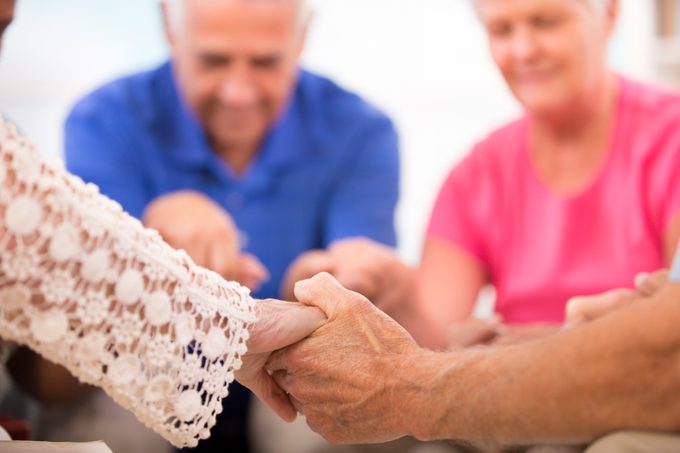How Spirituality May Help Cancer Patients
Could religion or spirituality make a difference in the health of cancer patients?

Science and religion have crossed paths in a recent study that suggests believing in a higher power may positively impact the mental, physical and social health of cancer patients.
The study, published in the journal Cancer, analyzed previous studies on spirituality that looked at a total of 44,000 cancer patients. Researchers found that patients who described higher levels of spirituality also reported better overall health, including less severe symptoms from the illness and its treatment.
But the positive health scores weren’t associated with any one religion in particular, nor did specific religious practices such as going to services, prayer or meditation, play a role. ‘Patients should not be pressured into adopting religious or spiritual beliefs,’ study author Heather Jim told Reuters. ‘Although our data suggest that patients with greater religion or spirituality tend to have better perceived physical health, these are aggregate-level data.’ She also notes that patients don’t have to be religious or spiritual to experience positive health outcomes.
Why does believing in God (or whatever) play a role in health? Jim tells Reuters it could be because religious people may do healthy things like avoiding alcohol. It may also be due to the fact that religious communities tend to provide support in times of need. Another potential reason: belief in a greater power may increase feelings of forgiveness and positivity, which result in reduced stress.
Previous research suggests forgiveness can benefit your health in lots of different ways, from lowering blood pressure to improving sleep and reducing pain. Plus, a sunnier outlook has been linked to better coping skills and longevity. However, if a patient’s belief turns into resentment about their illness (‘Why me, God?’), the positives associated with spirituality may be cancelled out. Jim tells Reuters ‘spiritual distress’ is associated with increased risk for depression and a greater chance the patient won’t follow their prescribed course of treatment.
The study’s authors stress that religion and spirituality are complicated and very personal, so what helps one person may not work for another. More proof for that age old adage: to each their own.




